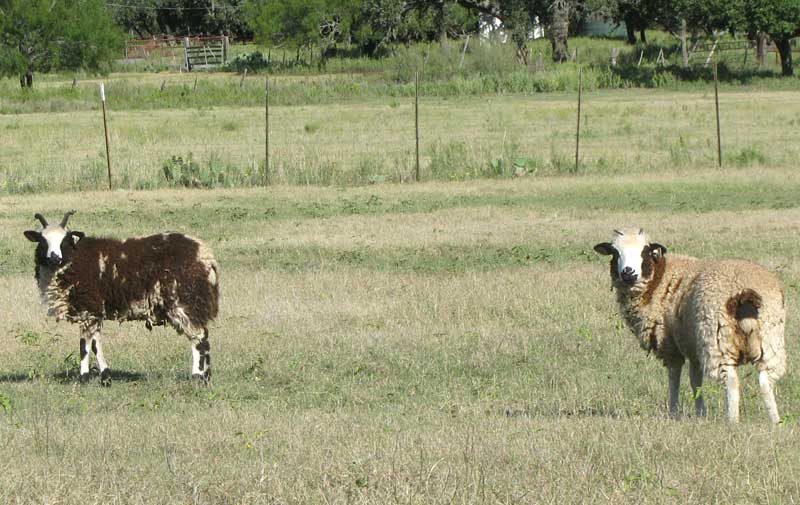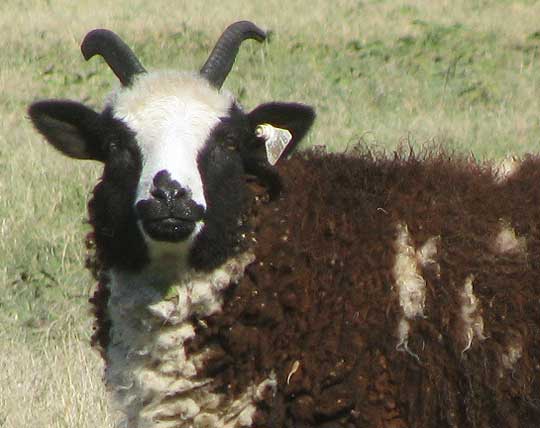Excerpts from Jim Conrad's
Naturalist Newsletter

from the October 27, 2013 Newsletter issued from the Frio Canyon Nature Education Center in the valley of the Dry Frio River in northern Uvalde County, southwestern Texas, on the southern border of the Edwards Plateau; elevation ~1750m (~5750 ft); N29.62°, W99.86°; USA
JACOB SHEEP
Biking a few miles south of here I passed a field in which some unusual looking sheep were grazing, as shown above. A close-up of one of the sheep's heads is shown below:

I know the sheep's owner, who raises them for their wool, which she hand spins. My friend says her sheep are Jacob Sheep, which I've never heard of. However, their story on the Internet is fascinating, as you can see on their Wikipedia page at https://en.wikipedia.org/wiki/Jacob_sheep).
Jacob Sheep are described as a rare breed of small, piebald (colored with white spots), "polycerate" sheep, polycerate meaning "multi-horned." Adult Jacobs normally produce from two to six horns, commonly four. They're the only sheep breed producing offspring that are both polycerate and piebald (spotted). Most Jacob Sheep are black and white, and they're raised not only for wool but also for their meat, and hides. My friend chose Jacobs because they produce wool of more than one color, and she can get higher prices for her spun wool if she can produce it in different natural colors.
Jacobs are regarded as an heirloom breed, which means that they are close to their wild ancestral form. According to recent genetic analysis, apparently their ancestors roamed southwestern Asia and Africa.
Jacobs are named for the Biblical figure of Jacob, who asked his father-in-law for those sheep in the father-in-law's flock that were speckled or spotted, so that he'd always know which sheep were his (Genesis 30:31–43). Thereafter Jacob selected for the strongest sheep and eventually produced an exceptionally good flock. This may be the earliest record of selective breeding.
The breed is estimated to consist of a global population of less than 5,000. As of 2009 the American Livestock Breeds Conservancy has listed Jacob Sheep as a "threatened breed" and a conservation priority.